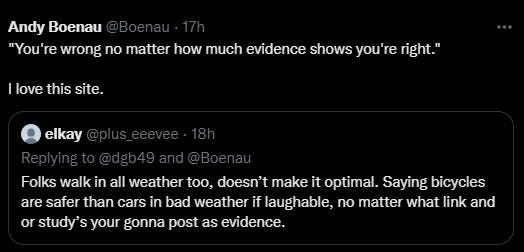You will encounter NPCs in the game of life
They hurl out sarcasm, LOL emojis, and ellipses like it’s a recipe for cleverness.
We’ve all experienced situations where we stop and think “is this for real? Am I in a reality show right now?” I don’t believe we’re living in a simulation, but there are definitely times when alleged human beings try to prove me wrong.
In role-playing games, a non-player character (NPC) is a character that’s not controlled by any of the players. NPC behavior in computer games is scripted and automatic, triggered by certain actions or dialogue with the player characters. The blacksmith or general store owner, for example. Your gaming character walks into their shops and buys or sells goods. Their dialogue is based on your actions and prompts.
NPCs are all around us in the game of life.
They play a role, so it’s useful to identify and interact with them according to their programming. Remember, an NPC repeats what’s in the script. In the social media context, that means cliched ideas with cliched delivery.
One of the most common on Facebook and Twitter has to be the “Oh, so you’re saying [thing nobody said]. Got it.”
“I met my husband at the church in my neighborhood.”
“Oh, so you’re saying atheists can’t find a partner? Got it.”
The political scripts are equally annoying and alert other NPCs to their presence.
“Biden will bankrupt us!”
“dRump needs to be locked up!”
“This is the most important election of our lifetime! RT if you think ____ is the true patriot!”
Urbanism NPCs
The urbanism NPC programming is eerily similar to Jon Stewart’s bits on the Daily Show years ago. In fact, if you’re in the mood to waste some time, watch some Greatest Hits compilation videos of modern late night comedians: Stewart, Noah Trevor, Jimmy Kimmel, and Seth Meyers. Then hop on Twitter and scroll through any trending topic.
The comments are flooded with NPCs ranting late night-esque zingers in place of original thought. It’s as if using the delivery of a funny person makes you funny.
Sometimes an NPC will glitch and reveal their programming, like this anonymous account:
Last week I read an article celebrating a new plan for a national charging network for EVs. Anyone who follows my work knows I support modal choice. I want everybody to have all the options, but I do have an extreme bias for walk-friendly, bike-friendly networks.
So in response to the article, I tweeted this and it took off:
The NPCs popped in, reciting their programmed lines as substitutes for thought.
It’s just like the video game blacksmith being alerted to a swordless knight walking through the door. “This blade is only 20 pieces of silver.” It doesn’t matter if the knight says, “I’d like to build an above-ground swimming pool.” The NPC won’t break character.
I wrote the post to draw attention to transportation policy and funding priorities. It’s not about banning cars or shaming car owners. (I own a car—gasp!)
Here’s a sample of NPC tweets on my timeline:
This isn’t about name-calling opposing points of view. I welcome and enjoy intellectual tussles. These comments drop in without thought to context or nuance of the tweets around them. The accounts are just waiting for the right sequence (e.g. “drive electric cars”) so they can recite their script.
Many of the comments are almost direct copy/paste of each other. I can’t tell you how many sarcastic comments I saw about “right, that’s why we have horses.” They’re not engaging to learn, but to play a set role. I’m for this. I’m against that. This is smart. That is dumb.
NPC behavior is easy to slip into if you’re not careful. I’ve certainly seen it in myself. It’s easy because humans are tribal and we want our in-group to know we’re not part of the out-group.
When it comes to social media, I approach NPC engagement with a couple options in mind:
Ignore and scroll on.
Turn the NPC into a performer in my game.
However I engage, I know NPC roles are not personal. They hurl out sarcasm, LOL emojis, and ellipses like it’s a recipe for funny. Maybe there’s a beating heart and fleshy body behind the avatar, but they’re acting like scripted characters. Treat them as such.
My parting advice: be intellectually curious. I’ve learned the most about planning and engineering when I’ve assumed I know less than the person I’m listening to. Be ready to be wrong. It’s amazing how easy it is to not get offended online when you work that way.






